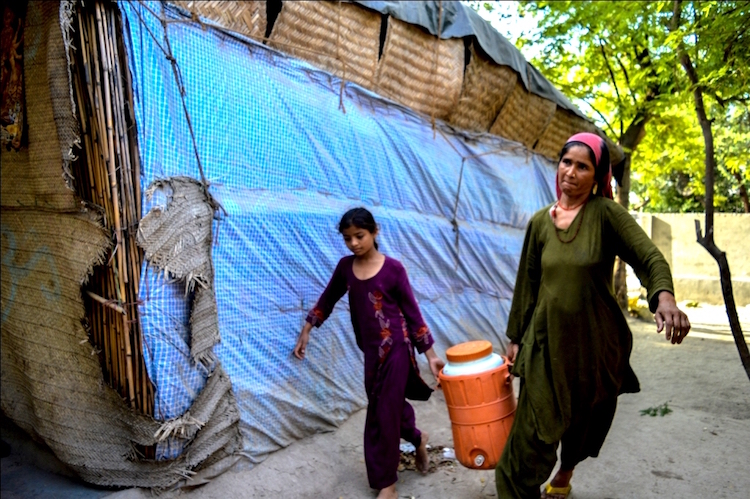Viewpoint by Jonathan Power*
LUND, Sweden (IDN-INPS) – It’s not that many years ago that Warren Christopher, the U.S. Secretary of State, commenting on the outbreak of separatist ethnic strife in the 1990s in countries such as Somalia, Zaire, Rwanda, East Timor and ex-Yugoslavia, asked. “Where will it end? Will it end with 5,000 countries?”
It was a serious misjudgement. Separatist wars have fallen sharply. Minorities are not fighting for their own patch of territory at the rate they were. Since 1993 the number of wars of self-determination has been halved.
The list of countries, where the problems of ethnic conflict looked potentially ominous but which are now vastly improved, is a long one. Baltic nationalists have moderated their treatment of their Russian minorities. Hungarians in Slovakia and Romania are no longer under threat. After a long war Croatia is respecting minorities. Conflicts between the central government and India’s Mizo people, the Gaguaz minority in Moldova and the Chakma tribal group in Bangladesh’s Chittagong Hills have all diminished. One of Russia’s most important but least-noted achievements has been its peacefully-arrived-at power-sharing agreements with Tatarstan, Bashkiria and forty other regions.
A list almost as long can still be made for ethnic disputes unsolved. But what we have learnt in the last few years is that the pool of ethnic conflicts is not infinite; that the ultra-pessimism of just a few years ago was misplaced; and that human beings can settle for less, as long as the dominant party recognizes the underdog’s integrity and gives it enough room for manoeuvre.
Nevertheless, there is no time for complacency, as a new report by Britain’s Minority Rights Group makes clear. Every year it publishes an index showing which countries have the worst ethnic strife and how their position relative to other countries has changed over previous years.
Yemen is the country that rose most significantly in the index this year. A local insurgency has been turned by outside intervention into a regional sectarian conflict between Sunni and Shi’a. The majority of civilians killed have been hit by airstrikes, mainly by Saudi warplanes with arms provided by the U.S. and UK.
Two thirds of the countries on the list of “major risers” are in Africa. They are Nigeria, Burundi, Eritrea, Angola, Uganda, Cameroon and Mozambique. The other third are Turkey, Papua New Guinea and Bangladesh. Last year the list was headed by Ukraine (Crimea), Egypt, North Korea and Venezuela.
They are the “major risers” but they are not necessarily experiencing the worst suffering and killings. 70% of the worst are not African.
Syria, as we would all expect, holds the number one place for the number killed. It is followed in order of severity by Somalia, Iraq, Sudan, Afghanistan, South Sudan, Yemen, Pakistan, Myanmar, Libya and Nigeria.
In June the UN High Commissioner for Human Rights expressed his alarm at the refusal of several states to grant access to his staff. Countries find all sorts of ways to say “no entry”. “Elaborately ritualised and unreasonably prolonged negotiations and responses to specific requests which fob the UN off with inadequate alternatives to real, on the ground, fact-base, assessment.”
After ten years of refusing all requests Cuba earlier this year allowed a visit from a UN rapporteur. Nigeria has failed to respond to at least 14 requests to visit.
We now have the International Criminal Court (ICC) to prosecute war crimes. An overwhelming majority of the world’s nations have ratified it including all the European nations, but not India, Saudi Arabia, Russia and China. The ICC, together with its affiliated courts, has pursued a number of prosecutions of war criminals who have been judged responsible for ethnic conflict.
This is a major step forward in the development of international law. But the weakness is that the Court can only deal with crimes after they have been committed. What is needed, I believe, is a Court of Ethnic Disputes.
When an ethnic group feels threatened – for example the Rohingyas in Myanamar right now – it would have the right to appeal to the Court which would then have the power to subpoena the two sides. If a party refused to appear before the Court it would be referred to the UN Security Council which could then order sanctions and even arrests.
The Court would investigate the situation on the ground and make its determination. It could decide that a state has behaved brutally or that an ethnic group has been violently provocative. Again, sanctions and arrests could follow if the situation didn’t immediately change for the better.
Doubtless there would be situations – as with Syria today – when the Court and the Security Council would be ignored. But if a potentially bad situation is caught in its early days, conflicts could be avoided.
We shouldn’t underestimate how powerful a tool is international law when toughly applied. [IDN-INPS – 08 August 2017]
*Note: For 17 years Jonathan Power authored “Like Water on Stone- the History of Amnesty International” (Penguin). He was a foreign affairs columnist for the International Herald Tribune. He has forwarded this and his previous Viewpoints for publication in IDN-INPS. Copyright: Jonathan Power.
Photo Credit: Minority Rights Group International | Mirza Arif Beg.
IDN is flagship agency of the International Press Syndicate.
facebook.com/IDN.GoingDeeper – twitter.com/InDepthNews

